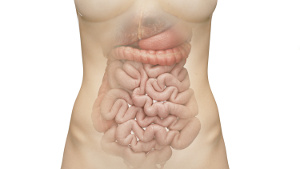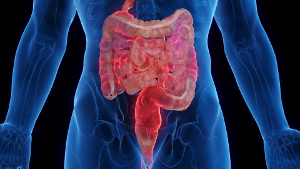| 1 x afterRenderRawModule mod_tags_popular (Search) (19.09KB) (32.68%) | 50.08ms |
| 1 x afterRenderRawModule mod_articles_category (READ MORE...) (4.76KB) (24.38%) | 37.36ms |
| 1 x afterRenderComponent com_tags (1.37MB) (13.72%) | 21.03ms |
| 1 x afterInitialise (1.28MB) (6.57%) | 10.07ms |
| 1 x afterRender (268.84KB) (3.85%) | 5.91ms |
| 1 x beforeRenderRawModule mod_articles_category (READ MORE...) (439.86KB) (3.41%) | 5.22ms |
| 1 x afterRoute (826.27KB) (2.66%) | 4.07ms |
| 1 x beforeRenderRawModule mod_custom (Chronic fatigue tied Alan to his bed but Q10 capsules saved him:) (244.28KB) (1.96%) | 3.00ms |
| 1 x afterRenderRawModule mod_finder () (128.59KB) (1.22%) | 1.87ms |
| 1 x afterRenderRawModule mod_languages (Sprogskift) (28.16KB) (1.02%) | 1.56ms |
| 1 x afterRenderRawModule mod_menu (Main Menu - English) (186.95KB) (0.96%) | 1.48ms |
| 1 x afterDispatch (27.42KB) (0.87%) | 1.34ms |
| 1 x afterRenderRawModule mod_custom () (22.61KB) (0.82%) | 1.26ms |
| 1 x afterRenderRawModule mod_menu (Main Menu - English) (6.3KB) (0.5%) | 771μs |
| 1 x beforeRenderRawModule mod_menu (Main Menu - English) (29.14KB) (0.47%) | 719μs |
| 1 x afterRenderRawModule mod_languages (Sprogskift Mobil) (3.89KB) (0.43%) | 653μs |
| 1 x After Access::preloadComponents (all components) (103.05KB) (0.41%) | 635μs |
| 1 x afterLoad (455.95KB) (0.37%) | 571μs |
| 1 x afterRenderRawModule mod_finder () (6.29KB) (0.37%) | 568μs |
| 1 x afterRenderRawModule mod_menu (Are you getting enough vitamins and minerals?) (22.39KB) (0.33%) | 506μs |
| 1 x beforeRenderModule mod_articles_category (READ MORE...) (20.82KB) (0.3%) | 462μs |
| 1 x Before Access::preloadComponents (all components) (50.9KB) (0.3%) | 459μs |
| 1 x afterRenderRawModule mod_menu (Did you know.....) (25.52KB) (0.2%) | 302μs |
| 1 x beforeRenderComponent com_tags (20.62KB) (0.16%) | 247μs |
| 1 x afterRenderRawModule mod_menu (The key to increased well-being) (17.83KB) (0.15%) | 235μs |
| 1 x beforeRenderRawModule mod_custom () (8.66KB) (0.15%) | 223μs |
| 1 x afterRenderRawModule mod_custom (BOOST YOUR IMMUNE DEFENSE) (3.8KB) (0.11%) | 174μs |
| 1 x beforeRenderRawModule mod_custom () (6.62KB) (0.09%) | 139μs |
| 1 x afterRenderRawModule mod_custom () (904B) (0.09%) | 137μs |
| 1 x beforeRenderRawModule mod_menu (Main Menu - English) (5.07KB) (0.07%) | 109μs |
| 1 x afterRenderRawModule mod_custom () (896B) (0.06%) | 94μs |
| 1 x beforeRenderRawModule mod_custom () (688B) (0.05%) | 81μs |
| 1 x afterRenderModule mod_menu (Main Menu - English) (4.86KB) (0.04%) | 56μs |
| 1 x afterRenderModule mod_custom (Chronic fatigue tied Alan to his bed but Q10 capsules saved him:) (1.3KB) (0.04%) | 54μs |
| 1 x afterRenderModule mod_custom () (1.23KB) (0.04%) | 54μs |
| 1 x afterRenderModule mod_menu (Main Menu - English) (1.25KB) (0.03%) | 51μs |
| 1 x afterRenderRawModule mod_custom (Get additionel and more detailed knowledge ) (1.55KB) (0.03%) | 47μs |
| 1 x afterRenderModule mod_finder () (1.23KB) (0.03%) | 47μs |
| 1 x afterRenderModule mod_articles_category (READ MORE...) (1.25KB) (0.03%) | 42μs |
| 1 x afterRenderRawModule mod_custom (Chronic fatigue tied Alan to his bed but Q10 capsules saved him:) (1.06KB) (0.03%) | 41μs |
| 1 x After Access::getAssetRules (id:8 name:com_content) (7.05KB) (0.03%) | 39μs |
| 1 x afterRenderModule mod_finder () (3.29KB) (0.02%) | 37μs |
| 1 x afterRenderModule mod_languages (Sprogskift Mobil) (1.27KB) (0.02%) | 32μs |
| 1 x afterRenderRawModule mod_custom (Useful Links) (1.02KB) (0.02%) | 31μs |
| 1 x afterRenderModule mod_tags_popular (Search) (1.27KB) (0.02%) | 31μs |
| 1 x afterRenderModule mod_custom (Cholesterol-lowering without side effects:) (1.28KB) (0.02%) | 29μs |
| 1 x afterRenderModule mod_menu (Did you know.....) (1.27KB) (0.02%) | 28μs |
| 1 x Before Access::getAssetRules (id:8 name:com_content) (840B) (0.02%) | 27μs |
| 1 x beforeRenderRawModule mod_custom (Get additionel and more detailed knowledge ) (816B) (0.02%) | 27μs |
| 1 x afterRenderModule mod_custom () (2.43KB) (0.02%) | 26μs |
| 1 x beforeRenderRawModule mod_custom (BOOST YOUR IMMUNE DEFENSE) (6.45KB) (0.02%) | 25μs |
| 1 x afterRenderModule mod_custom (BOOST YOUR IMMUNE DEFENSE) (1.28KB) (0.02%) | 25μs |
| 1 x beforeRenderRawModule mod_custom (Q10 goes by many names) (608B) (0.02%) | 24μs |
| 1 x afterRenderRawModule mod_custom (Overview of vitamins, minerals, and essential fatty acids) (960B) (0.02%) | 23μs |
| 1 x afterRenderRawModule mod_custom (Q10 goes by many names) (928B) (0.01%) | 22μs |
| 1 x afterRenderRawModule mod_custom (Cholesterol-lowering without side effects:) (1.06KB) (0.01%) | 22μs |
| 1 x afterRenderModule mod_custom (Get additionel and more detailed knowledge ) (1.3KB) (0.01%) | 22μs |
| 1 x afterRenderModule mod_custom (Overview of vitamins, minerals, and essential fatty acids) (1.31KB) (0.01%) | 22μs |
| 1 x afterRenderModule mod_custom () (2.71KB) (0.01%) | 22μs |
| 1 x afterRenderModule mod_menu (Are you getting enough vitamins and minerals?) (1.3KB) (0.01%) | 21μs |
| 1 x afterRenderModule mod_languages (Sprogskift) (5.31KB) (0.01%) | 21μs |
| 1 x afterRenderModule mod_custom (Are you taking supplements) (1.28KB) (0.01%) | 20μs |
| 1 x afterRenderModule mod_custom (Weight loss that works) (1.27KB) (0.01%) | 20μs |
| 1 x afterRenderModule mod_custom (Antiaging) (3.77KB) (0.01%) | 20μs |
| 1 x afterRenderModule mod_custom (Useful Links) (1.27KB) (0.01%) | 20μs |
| 1 x afterRenderModule mod_custom (Q10 goes by many names) (1.27KB) (0.01%) | 20μs |
| 1 x afterRenderModule mod_custom (Check this before you buy a Q10 product) (1.28KB) (0.01%) | 19μs |
| 1 x afterRenderModule mod_menu (The key to increased well-being) (1.28KB) (0.01%) | 19μs |
| 1 x afterRenderRawModule mod_custom (Check this before you buy a Q10 product) (944B) (0.01%) | 18μs |
| 1 x beforeRenderRawModule mod_menu (The key to increased well-being) (736B) (0.01%) | 17μs |
| 1 x afterRenderRawModule mod_custom (Are you taking supplements) (1.03KB) (0.01%) | 17μs |
| 1 x afterRenderRawModule mod_custom (Weight loss that works) (1.03KB) (0.01%) | 17μs |
| 1 x afterRenderRawModule mod_custom (Antiaging) (912B) (0.01%) | 17μs |
| 1 x beforeRenderRawModule mod_languages (Sprogskift) (3.94KB) (0.01%) | 17μs |
| 1 x beforeRenderRawModule mod_languages (Sprogskift Mobil) (912B) (0.01%) | 17μs |
| 1 x beforeRenderRawModule mod_custom (Useful Links) (1.06KB) (0.01%) | 16μs |
| 1 x beforeRenderRawModule mod_tags_popular (Search) (2.36KB) (0.01%) | 14μs |
| 1 x beforeRenderModule mod_custom (BOOST YOUR IMMUNE DEFENSE) (6.81KB) (0.01%) | 14μs |
| 1 x beforeRenderRawModule mod_menu (Did you know.....) (720B) (0.01%) | 13μs |
| 3 x beforeRenderModule mod_custom () (704B) (0.01%) | 12μs |
| 1 x beforeRenderRawModule mod_custom (Cholesterol-lowering without side effects:) (368B) (0.01%) | 12μs |
| 1 x beforeRenderRawModule mod_custom (Overview of vitamins, minerals, and essential fatty acids) (768B) (0.01%) | 11μs |
| 1 x beforeRenderRawModule mod_menu (Are you getting enough vitamins and minerals?) (2.5KB) (0.01%) | 11μs |
| 1 x beforeRenderModule mod_tags_popular (Search) (1.98KB) (0.01%) | 11μs |
| 1 x beforeRenderModule mod_menu (Are you getting enough vitamins and minerals?) (2.13KB) (0.01%) | 11μs |
| 1 x beforeRenderRawModule mod_finder () (6.34KB) (0.01%) | 11μs |
| 1 x beforeRenderModule mod_custom (Get additionel and more detailed knowledge ) (1.17KB) (0.01%) | 10μs |
| 1 x beforeRenderModule mod_menu (The key to increased well-being) (352B) (0.01%) | 10μs |
| 1 x beforeRenderModule mod_menu (Did you know.....) (336B) (0.01%) | 10μs |
| 1 x beforeRenderRawModule mod_custom (Are you taking supplements) (736B) (0.01%) | 9μs |
| 1 x beforeRenderRawModule mod_custom (Weight loss that works) (736B) (0.01%) | 9μs |
| 1 x beforeRenderRawModule mod_custom (Antiaging) (720B) (0.01%) | 9μs |
| 1 x beforeRenderModule mod_custom (Overview of vitamins, minerals, and essential fatty acids) (384B) (0.01%) | 9μs |
| 1 x beforeRenderModule mod_custom (Check this before you buy a Q10 product) (352B) (0.01%) | 9μs |
| 1 x beforeRenderModule mod_custom (Are you taking supplements) (352B) (0.01%) | 9μs |
| 2 x beforeRenderModule mod_finder () (704B) (0.01%) | 9μs |
| 1 x beforeRenderRawModule mod_custom (Check this before you buy a Q10 product) (752B) (0.01%) | 9μs |
| 1 x beforeRenderModule mod_custom (Weight loss that works) (336B) (0.01%) | 9μs |
| 1 x beforeRenderModule mod_custom (Q10 goes by many names) (208B) (0.01%) | 8μs |
| 1 x beforeRenderModule mod_custom (Antiaging) (336B) (0.01%) | 8μs |
| 2 x beforeRenderModule mod_menu (Main Menu - English) (720B) (0.01%) | 8μs |
| 1 x beforeRenderModule mod_custom (Useful Links) (1.44KB) (0.01%) | 8μs |
| 1 x beforeRenderRawModule mod_finder () (2.3KB) (0.01%) | 8μs |
| 1 x beforeRenderModule mod_languages (Sprogskift) (720B) (0%) | 6μs |
| 1 x beforeRenderModule mod_custom (Chronic fatigue tied Alan to his bed but Q10 capsules saved him:) (768B) (0%) | 4μs |
| 1 x beforeRenderModule mod_languages (Sprogskift Mobil) (720B) (0%) | 3μs |
| 1 x beforeRenderModule mod_custom (Cholesterol-lowering without side effects:) (752B) (0%) | 1μs |
 The widespread selenium deficiency in Europe increases the risk of infections, inflammatory bowel disorders, and abnormal cell development. In a new review article published in Nutrients, the authors look at selenium’s role in the highly developed immune defense. This includes the immune defense’s communication, which is vital for our ability to fight off viruses and germs swiftly and directly, and for avoiding unwanted inflammation that can become potentially life-threatening. Seleniumalso serves as a very effective antioxidant that protects cells and their DNA against oxidative damage. In addition, selenium has a number of anti-cancer mechanisms.
The widespread selenium deficiency in Europe increases the risk of infections, inflammatory bowel disorders, and abnormal cell development. In a new review article published in Nutrients, the authors look at selenium’s role in the highly developed immune defense. This includes the immune defense’s communication, which is vital for our ability to fight off viruses and germs swiftly and directly, and for avoiding unwanted inflammation that can become potentially life-threatening. Seleniumalso serves as a very effective antioxidant that protects cells and their DNA against oxidative damage. In addition, selenium has a number of anti-cancer mechanisms.







 All the different
All the different 

 The rate of inflammatory bowel diseases like ulcerous colitis is growing, and diet plays a major role. Even if you eat a healthy diet, it can be a challenge to get enough
The rate of inflammatory bowel diseases like ulcerous colitis is growing, and diet plays a major role. Even if you eat a healthy diet, it can be a challenge to get enough 
 Danish scientists from Aalborg University have published a study of mice in which they demonstrate that
Danish scientists from Aalborg University have published a study of mice in which they demonstrate that  Promising results have been seen with the use of
Promising results have been seen with the use of  Multiple studies have shown that
Multiple studies have shown that  "After about one week of taking the Q10 supplement I could feel a huge difference," says 23-year old Alan Piccini, who has been suffering from extreme fatigue and muscle aches ever since he was a child.
"After about one week of taking the Q10 supplement I could feel a huge difference," says 23-year old Alan Piccini, who has been suffering from extreme fatigue and muscle aches ever since he was a child. “Taking capsules with co-enzyme Q10 has freed me of the severe side effects of my cholesterol lowering medicine,” Mrs Franken explains.
“Taking capsules with co-enzyme Q10 has freed me of the severe side effects of my cholesterol lowering medicine,” Mrs Franken explains.